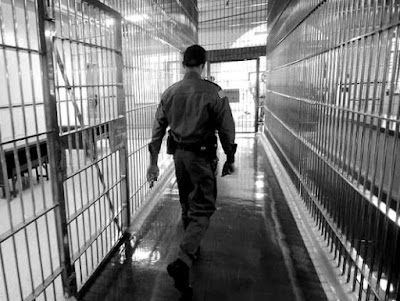AUSTIN — Nine years ago, Christopher Scott was sitting in a prison cell, serving a life sentence for a murder he didn’t commit, praying that someone would help prove his innocence.
Today, he’s the subject of a successful documentary about his wrongful conviction, running a nonprofit that investigates the claims of wrongfully convicted inmates and wearing a $50,000 grin.
All that, Scott said, was made possible when the state of Texas paid him more than $1 million as a sort of apology for stealing more than 12 years of liberty from him. The state will pay him another $4,900 a month for the rest of his life. The money has helped him buy a home and a car, start his business and repair his broken smile.
“That compensation probably made me the person I am today,” Scott said. “That money helps you rebuild and restore your life, and it makes it where you can enjoy your life.”
Texas is one of the most generous states in the nation when it comes to compensating the wrongly convicted. It’s paid a total of $109 million to 109 women and men, including Scott, who were wrongfully convicted. But the number of exonerees receiving compensation is falling, a trend that, for better or worse, experts expect to continue.
“The problem is still very much there,” said Mike Ware, executive director of the Innocence Project of Texas. “It’s just more difficult and time consuming to identify those cases and to investigate those cases and to successfully litigate those cases.”
Compensation
Texas hasn’t always been so generous to exonerees. Before 2001, only two people had received compensation, each getting about $25,000 for their time behind bars.
In 2001, as DNA testing began to reveal that wrongful convictions were more pervasive than lawmakers imagined, they increased the amount exonerees could receive to $25,000 per year of incarceration, or $500,000 if the person had been in prison longer than 20 years. In 2007, legislators increased the amount to $50,000 per year served or $100,000 per year on death row.
After reports of destitute exonerees who’d gone broke paying lawyers to pursue their cases and squandering what remained, lawmakers adopted a new payment plan in 2009. Those who have been found actually innocent by a Texas court are now eligible for $80,000 per year of incarceration in a lump sum when they are released. Texas pays them the same amount in an annuity that is doled out in monthly payments the rest of their lives.
“The cost is an investment the state needed to make in these people who have been wrongfully convicted,” said Texas Tech University Chancellor Robert Duncan, a former senator who sponsored the law. “The price tag on it, I don’t think anybody really knew what it would be over the long period of time.”
So far, that price tag is $109,987,935. The money has gone to men and women who together spent a total of 1,160 years imprisoned for crimes they didn’t commit.
Lawmakers have also added other benefits for the wrongfully convicted, like state health insurance and tuition reimbursement.
“The whole goal of the law was to try to get people back on their feet,” said Rep. Rafael Anchia, D-Dallas, who authored the 2009 compensation law.
Back on their feet
Scott, 47, said that’s exactly what the money did for him. After students at the University of Texas at Arlington began investigating his 1997 murder conviction, another inmate confessed to committing the crime and Scott was released. In 2010, the Texas Court of Criminal Appeals exonerated him, making him eligible for compensation.
The biggest investment Scott made was in starting a nonprofit called House of Renewed Hope, which he runs along with other exonerated men in Dallas. The organization investigates innocence claims of men and women in prison. His story and his work are the topic of a documentary titled True Conviction that debuted this spring at the Tribeca Film Festival.
“We’ve been working on trying to free as many innocent people as we can,” he said. “It’s a hard process.”
➤ Click here to read the full article
Source: Dallas News, Brandi Grissom, October 29, 2017
⚑ | Report an error, an omission, a typo; suggest a story or a new angle to an existing story; submit a piece, a comment; recommend a resource; contact the webmaster, contact us:
deathpenaltynews@gmail.com.
Opposed to Capital Punishment? Help us keep this blog up and running! DONATE!
"One is absolutely sickened, not by the crimes that the wicked have committed,
but by the punishments that the good have inflicted." -- Oscar Wilde












